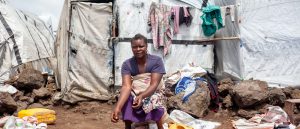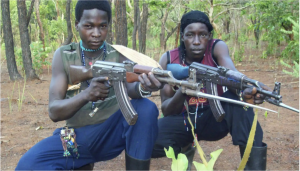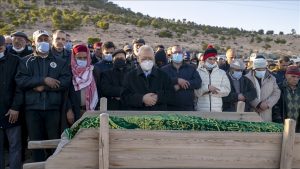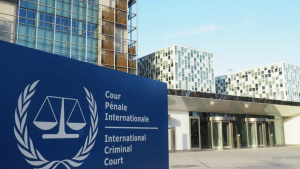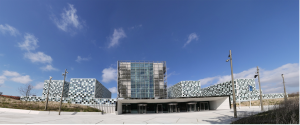By: Bridget Congo
Impunity Watch News Staff Writer
Kivu, Demographic Republic of Congo (DRC) — This year, the M23 rebel group has significantly expanded its territorial control in the DRC, capturing Goma and Bukavu, the capitals of North and South Kivu provinces, as well as the strategic mining hub Walikale in North Kivu. As a result, the total number of displaced individuals has now surpassed 7 million. Widespread human rights violations, including those targeting civilians, journalists, and human rights activists, have been reported, with both M23 forces and, in some cases, state actors implicated. As the conflict reaches its most severe point in over a decade, mounting evidence suggests the commission of war crimes and crimes against humanity in violation of international law.
Amnesty International and other human rights groups have documented numerous violations committed by the Rwandan-backed M23 fighters, including summary executions, sexual violence, forced recruitment, mass displacement, village raids, and looting. Many of these acts constitute war crimes under Article 8(2) of the Rome Statute, to which the DRC acceded in 2002. However, M23 rebels are not the sole perpetrators of human rights violations in the DRC. The Congolese government has increasingly suppressed press freedom in response to the ongoing conflict. On January 7, the President of the Communication and Broadcasting Board (Conseil supérieur de l’audiovisuel et de la communication, CSAC) announced that Radio France Internationale, France 24, and TV5 Monde’s Africa program were at risk of suspension for their coverage of the “alleged advances of terrorists.” On January 9, 2025, Justice Minister Constant Mutamba issued a warning on his X social media account that individuals, including journalists, who disseminate information regarding the M23 and Rwandan forces would face severe legal repercussions, including the death penalty. The increased violence and territorial gains by M23 rebels signal a profound shift in the conflict, disrupting the food supply for millions and further straining humanitarian efforts.
Several international courts have increased their monitoring of events in the DRC. In October 2024, International Criminal Court (“ICC”) Prosecutor Karim A.A. Khan KC announced that the Office is renewing its second investigative effort in the DRC, with a priority focus on alleged Rome Statute crimes committed in North Kivu since January 1st, 2022. This investigation is active. The first investigation commenced in 2004 and led to three convictions, in the cases The Prosecutor v. Thomas Lubanga Dyilo, The Prosecutor v. Germain Katanga, and The Prosecutor v. Bosco Ntaganda and to the acquittal of Mr Ngudojolo Chui. In February 2025, The African Court on Human and Peoples’ Rights (“AfCHPR”) held its first interstate public hearing regarding the DRC in the case of the Democratic Republic of Congo v. Republic of Rwanda. The DRC accused Rwanda of various human rights violations in relation to their backing of the M23 rebel group, marking a significant development in the court’s history.
In February 2025, concern over the escalating conflict in the DRC grew among European officials. Volker Türk, United Nations High Commissioner for Human Rights, warned that the risk of regional escalation is at its highest, calling for parties to cease hostilities and resume dialogue within the framework of the Luanda and Nairobi processes, emphasizing the need for all parties to uphold international human rights and humanitarian law. The European Parliament issued a Motion for a Resolution on the escalation of violence in the eastern Democratic Republic of the Congo, calling for the suspension of EU budget support and mineral trade agreements with Rwanda, as well as targeted sanctions against individuals and entities responsible for supporting the M23 rebels and perpetuating violence in the region.
For further information, please see:
Aljajeera English — Mapping the human toll of the conflict in DR Congo — 24 Mar. 2025
Human Rights Watch — DR Congo: Rwanda-Backed M23 Target Journalists, Activists — 12 Mar. 2025
ICC — Call for Information on the Situation in the Democratic Republic of the Congo — 12 Oct. 2024
ICC — Democratic Republic of the Congo — 14 Oct. 2024
X — Constant Mutamba — 9 Jan. 2025
